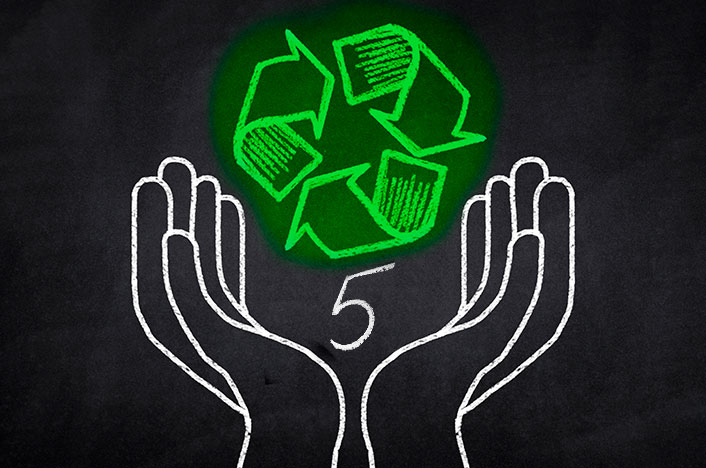The rule of the 3 Rs of ecology originates from a proposal by the international non-governmental organization Greenpeace and which Japan defended during the G8 summit in 2004 as a fundamental idea for the care of the planet.
This idea promotes three basic steps to reduce waste production and thus contribute to the protection and conservation of the environment.
Basic and everyday acts such as throwing garbage away without sorting it, buying “use and throw away” items or purchasing products with non-ecological or non-recyclable packaging contribute to the contamination of the planet.
Thus, from home it is possible to make a difference by starting to acquire more ecological habits and thus avoid environmental degradation.
Also, invite others to join this change in our workplace, school, or neighborhood. Everyone’s participation is essential to prevent the garbage problem from literally covering us.
This ‘3R’ rule can also be applied in business. Currently, there are areas of Corporate Environmental Responsibility that deal with two areas: waste management and environmental consultancy.
What are the basic 3Rs
1. Reduce
The idea is to create less waste than we generate.
This first point refers to reducing the consumption of products that are not essential for us and not letting ourselves be captured by fashion or advertising influences.
In addition, when we buy a product, we must be responsible consumers, choosing that they are durable, of local economy as possible, made with sustainable materials, among other desirable characteristics.
We should also look at how we use these products to extend their lifespan or use less energy. This is the case of efficient appliances, for example.
All of this extends to food, water, fuel and energy.
A good way to reduce is, for example, to plan the menu before going to the supermarket to avoid unnecessary and large purchases and thus avoid food waste. We can also make some things ourselves, like our cleaning products or cosmetics, and grow our own food.
2. Reuse
Out of habit, we tend to discard those products that have reached their useful life or that we consider no longer useful.
To take care of the planet, we must change this attitude and think about what other uses we can give to these products so that they are not wasted. And if they are in good condition, think that they might be useful to someone else.
It’s simple, we can use cloth bags, returnable packaging, use the materials for other purposes, whether utilitarian or decorative. A classic is to turn almost any container into a pot…. And many things that we would discard can be used to bring order to the kitchen, such as glass jars.
It is also valid to buy used products or rent them for specific cases, such as a party dress that we will only wear once in a lifetime.
3. Recycle
This word is the one we use most when we talk about waste and ecology. But it’s confusing.
Recycling refers to the fact that consumers separate our waste so that it is properly processed and does not end up mixed up in the landfill.
Basically, it consists of converting waste into a new and different product.
Specialized companies or cooperatives will be responsible, for example, for processing plastics to manufacture new parts with this material. One example is clothing made from PET, such as ecological t-shirts, dresses, among others. The same happens with glass, aluminum and cardboard, among other everyday materials.
The fourth R appears
4. Recover and repair
Continuing with the idea of reducing waste so as not to contaminate water, air and land, we arrive at the 4 R’s. The objective of the fourth R is to recover materials so as not to produce new ones.
We can be more responsible with our consumption habits, inform ourselves about product cycles and make better use of certain materials.
For example, we can choose a product whose spare parts will be available for a long time and which can be easily repaired.
Trying to patch the tube of the bicycle before changing it completely, sewing our clothes or intervening in them to make them more useful, among other ideas.
And we get to the fifth R, we start at the tip of the ball
5. Reject
As the saying goes, the best waste is the one that is not produced. With a proactive and conscious approach, a lot of waste can be avoided.
Let’s learn to say no to poor quality flyers, leaflets, promotional items, souvenirs, etc. then we won’t even have to think about what to do with them.
We do not accept plastic bags, however “recyclable” they may be, as we do not know if they will properly treat your waste. Let’s take our cloth bag or a cardboard box that we can reuse or compost.
If we have access to potable water, let us take a suitable bottle to carry with us at all times. This way we will avoid buying disposable plastics. The same if we want a coffee in the street, we can bring our own cup.
Let us be aware that we produce more waste than our planet can manage.
To adopt a new way of consuming, this 5R guide can help us!
